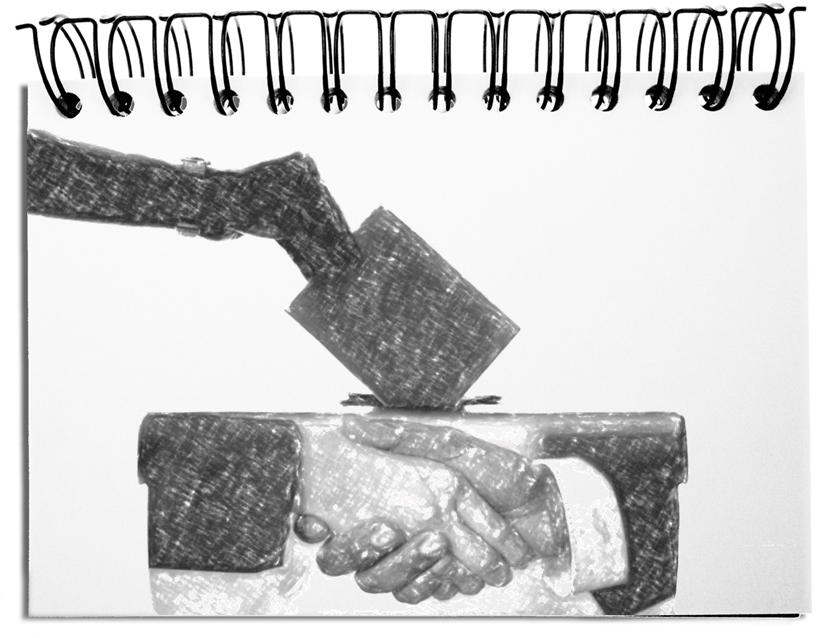Any system that exists over a long time results in effects that are not intended. It appears in the democracy that the politicians are no longer committed to a conviction but that they run after a positive election result. The decision process of the voters could have already been changed in an unspecific way. Without real election alternatives, the electorate is spoilt for choice.
With a closer look, the actual contents recede into the background in favor of other criteria.
- I elect a person
In former times charismatic personalities were a vital decision criterion for the election. At the same time, these people also had a large room for decision-making. Today, the freedom of movement is substantially reduced due to the party whips and coalition agreements. The candidates become pure figureheads, i.e., marketing carriers without real format, a shell without content that we would not like to elect. - I elect a party
The party is an essential element for voting since it is the actual meaning carrier of the election’s outcome. That sounds like times when parties influenced centrally the fate of states – some until today. Thus, the voting decision is determined by selecting one or the other ideological system with its bureaucracy and interest groups. However, the election should ensure the influence of your interests. - I prevent a party
If we think outside the box, there is one further decision criterion. Often there is a dislike against a particular party. If we select another that does not result in a sufficient number of votes that helps to prevent the unwanted party, we promote the inadvertent party by an awkward choice. In this case, we cannot avoid electing a party that prevents another. - I do not elect
A large voter group are today the non-voters. This does not mean that this is a uniform group of opinions and political interests. On the contrary. Here are enormous amounts of political convictions – from entirely left to completely right. Not to elect is the stupidest decision that a voter can make since they strengthen the inadvertent parties.
The fact that the group of the non-voters grows leads to the fact that the voters’ intentions are distorted. If we consider that of the 61 million German voters, then 25 million voters made the so-called Large Coalition possible – actually, these are less than half of the voters. Fifteen million non-voters indirectly tolerated this result by not voting.
Bottom line: If we elect, we can follow our conviction and elect the election program of a person or a party. However, perhaps that way, we promote people that we would like to prevent. In this case, nothing else remains other than electing the most potent adversary. Thus, the crucial spoilt for choice is whether we elect according to your conviction or the opportunistically most probable opponent of an undesired party. Democratic elections are losing thereby more and more their reliability and role model function for other cultures.
!!!Go vote!!!


